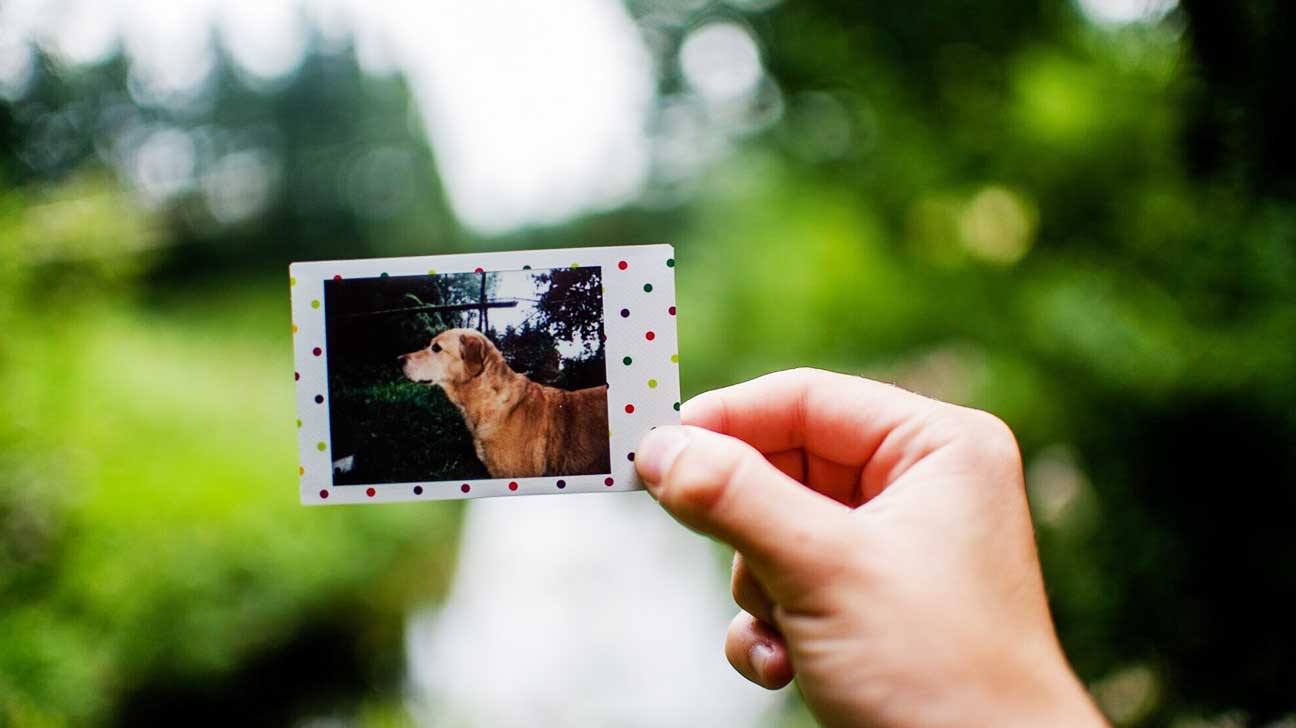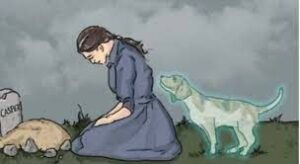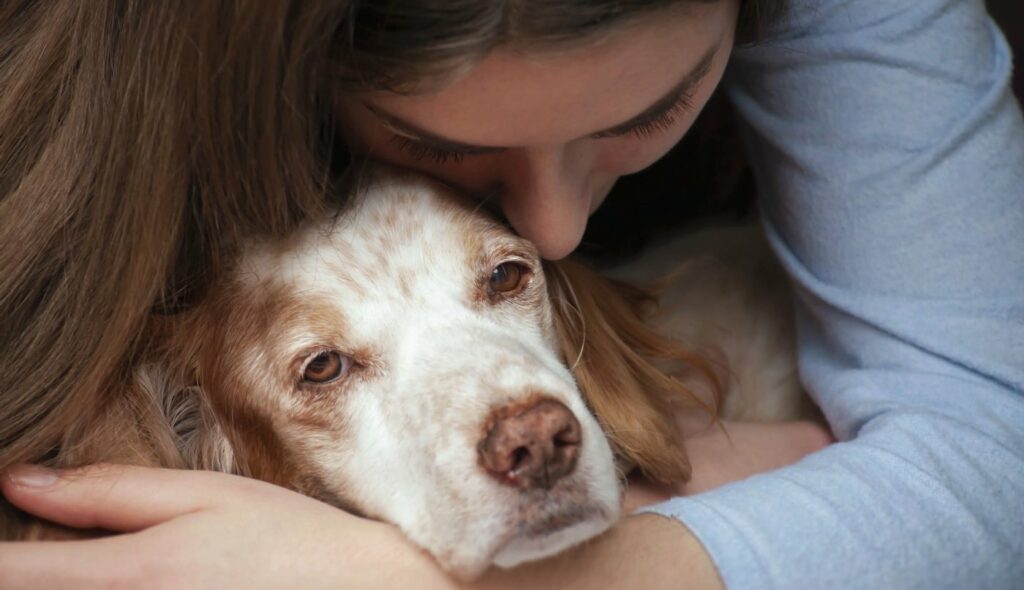Losing a pet is sad, and the grief from it can be very difficult. But there are ways for coping with losing a pet and helping yourself move on. This blog post will talk about coping strategies, feelings that come up when losing a pet, how to help children and seniors or anyone to grieve the loss, and more!
Contents
How It Feels Losing a Pet

Grief is a deep sadness that often feels overwhelming. When grieving the loss of your pet, you may feel emotions such as sorrow or emptiness. You might have physical symptoms associated with grief. Like being unable to sleep well or changes in appetite. These are normal reactions when grief strikes and will lessen over time if given enough space for healing.
When children lose a pet
After a pet dies, many children may experience symptoms of depression which is normal. They may show grief in different ways. Children often express their feelings of loss through play or drawings. They can sense when adults around them are sad.
When seniors lose a pet
When seniors lose a pet, they have to cope with the grief in their way. A senior might feel alone if he or she does not have anyone around them at home to talk about what happened. Older adults who have lost a pet may feel that they’ll never get another pet. Though this is not true.
Why It Hurts So Much Losing a Pet

People who have never experienced the loss of a pet would not understand why it is so hard to cope with such an emotional burden. Losing a beloved animal that has been part of your life for years, having them pass on or be euthanized can leave you feeling empty and hopeless at times.
It hurts because people feel like they lost a big part of their life and it can sometimes make them question why they even bother living. You are not alone, many people have gone through this kind of loss. It is important to remember that you can get through this and heal from the trauma associated with losing a pet.
Stages Of Grief And Loss Of A Pet
As with other types of losses, people often experience five main stages when they lose a pet.
However, these stages don’t always happen in that order or even at the same time.
They can occur days apart from one another. This is why it’s important to be mindful of your senior loved ones’ changes when they are going through this difficult time.
It is also helpful to know that these feelings are often short-lived. The key thing here is knowing what you can do for your senior or tiny tot during this troubling time.
Coping With The Loss Of A Pet In Your Children
When a child loses a pet, they must be allowed to grieve and express their feelings. This will help them move on from the loss of the pet easier as well as strengthen their bond with you. It can be beneficial for both parties in future years.
Break the news
First, make sure they understand what is happening. The last thing you want to do is keep it a secret from them. And then let them find out about the death in some other way like finding their pet dead or even worse – finding the body after your pet has been buried somewhere outside without letting them say goodbye first. You can use euphemisms like “put to sleep” or just say that their pet has died.
Let them grieve
Regardless of how they found out, the first thing you need to tell them is that it’s OK for them to grieve and feel sad about what happened. Because losing a pet can be very painful especially if they are close with their pets which many children are today.
Do not fret yourself
Since they are so young, you don’t need to worry too much about what they can handle. They will be sad and angry which is the same as adults who lose their pets without being prepared for it ahead of time.
Give them space
And just like with an adult’s grief, give children enough space but also keep them close because that helps them process what happened. They might want to write a letter or draw a picture for their pet. That they can then bury with them if you have already buried your pet somewhere outside.
Talk it out
In addition, just like adults who lose pets may benefit from going through counseling and talking about what happened, children could also use the same coping strategies as well. It simply means finding ways to cope with their loss and not bottle it up inside.
NOTE: Children will need time, patience, and understanding during this difficult period of their lives too. They may be afraid that the same thing might happen again or just not understand why they are no longer able to see their pet anymore.
Coping With The Loss Of A Pet In Seniors
With the loss of a pet comes many different emotions, and seniors are no exception. The key thing here though is that these feelings will pass and there are ways for seniors to help cope with the loss of a pet.
Let them grieve
The feelings can be overwhelming at times. But it is important not to bottle them up inside. This will only make things worse. Make them understand that it is okay to cry. That it is okay to feel like you are getting depressed or even that life isn’t worth living without your best friend.
Let them lean on
First off, if they have other pets at home it is a good idea to keep them with them. This will help them remind the presence of their beloved pet. And the love he had for them. If this isn’t possible, ensure that they do not shut themselves off from friends or family members. Offer them emotional support, if possible. Sometimes just talking about how you feel can help ease some of the pain.
Check up on them
If you’re concerned about your senior loved one and how they are coping with this loss. Watch for signs that may indicate depression such as:
- Social withdrawal,
- Loss of appetite, or
- Excessive sleeping
If you notice these things don’t be afraid to bring them up and ask them if everything is all right. Because not only is it the right thing to do but you might be able to help them cope with their loss better.
Get them a new furry friend
Seniors need to replace pets because the loss of an animal can leave them feeling sad. Further, it can lead to depression or loneliness so get your senior a new furry friend as soon as possible.
Coping Strategies With Losing a Pet

There are some coping strategies that you can try to ease the pain and allow yourself to slowly heal from losing your pet. You don’t have to go through this all on your own. So let someone know how you are feeling. Another great thing to do is work through the stages of grief so that you can come out on the other side a little more whole than before.
Acknowledge the loss
Don’t ignore what has happened. This will only prolong the grieving process and allow you to feel worse as a result of not being able to let go. Refusing to acknowledge that your pet is gone from this world now only prolongs the inevitable, further hurting both yourself and those around you in the long run.
Write about it
If you need to get your feelings out, write them down. Keep a journal of what you’re going through as a coping mechanism. This will allow you to be able to see the progress that’s been made over time instead of looking back with regret or viewing everything in black and white on an emotional level.
Grieve in your own time
Permit yourself to grieve however it is that makes sense for your loss, and take as much time as you need. Allow yourself to grieve in your own time. Letting the process happen on its own is a good way for you to be able to deal with everything that’s going on. without having it negatively affect other people around you or making them feel uncomfortable because they don’t know how to react.
Adopt a pet
There are so many animals out there looking for homes. You can always consider adopting a new pet or visiting your local animal shelter to see what other little critters are looking for homes so that you have something else to take care of and help ease the pain of losing one that was very special to you.
Losing a Pet In Euthanasia
Make sure this is what you want
Sometimes you may regret putting your pet to sleep and this can be a painful thought. Sometimes we want things that just aren’t the best for us in the long run. It’s normal to feel sadness at times, especially when it comes to losing those closest to us because of illness or death.
Take a call for euthanasia
Now in the case of suffering when it comes to your pet, taking that final step and having them put down can be one of the kindest things you could do. At least this way they are free from any pain or disease that is plaguing their lives at present time. If you feel like this is an option for you or your senior loved one, then talk with a veterinarian to take the first steps toward having this done.
Conclusion
If you’ve lost a pet and want to help someone else cope with the loss, we have some suggestions for how. Be empathetic and they will appreciate your kindness. Offer comfort by giving them time and space. Listening or talking about their feelings helps. Also, creating memories of their beloved companion together is the way to go. Additionally and helping them plan future events that won’t be as difficult without their friend in attendance.
You can also offer to take over the responsibility of caring for the remaining pets if possible. So they don’t feel too overwhelmed trying to do it on their own. Remembering what has helped you may provide support when others are hurting from the same type of pain. Let’s work together toward healing those who need our love most!
For more information, please contact MantraCare. Grief is a natural and complex emotional response to loss or change. If you have any queries regarding Online Grief Counseling experienced therapists at MantraCare can help: Book a trial therapy session


